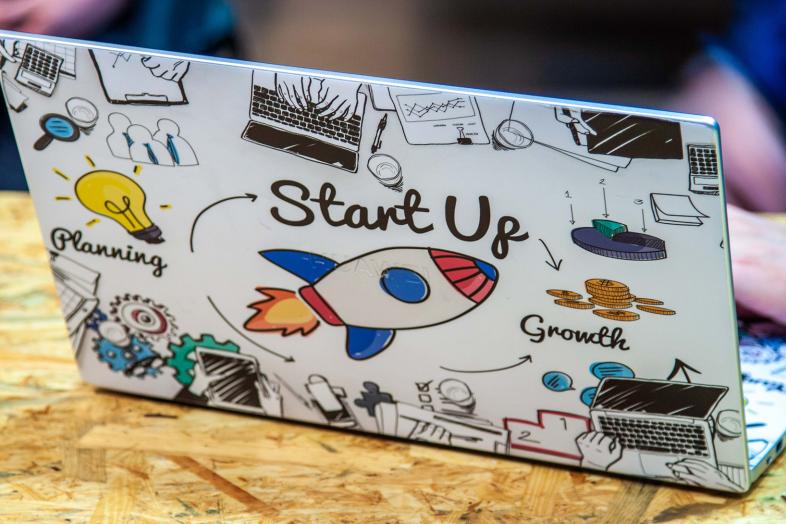Over 430 teams have refined business ideas in University of Helsinki incubators – “Their popularity took us by surprise”

The University’s Helsinki Incubators have received over €2 million in additional funding from the City of Helsinki. Looking ahead, the incubators will be even better aligned with the annual academic cycle, and peer meetings will be organised for teams.
Launched just over three years ago, the University of Helsinki’s entrepreneurship programmes have shown their effectiveness in producing promising innovations: to date, over 80 startups have been established, including solutions for treating chronic pain, limiting oil spills and improving the flavour of plant-based foods. Half of the new companies have succeeded in raising funds, totalling some €15 million.
“The results are impressive. We’re happy that the incubator operations launched with the city have got off to a good start,” says Jouni Hirvonen, the University’s Vice-Rector for Innovation.
Startups allow research and education to be transformed into solutions with global benefits. This is why the University aims to support those pursuing an entrepreneurial path.
Quickly gaining recognition
So far, the incubators have hosted 432 entrepreneurial teams, including students, researchers and experienced serial entrepreneurs. Many applications initially came from outside the University, for example, from international professionals who saw entrepreneurship as an employment opportunity.
Irina Blomqvist, who heads the University’s Helsinki Incubators reflects on their success: “Their popularity took us by surprise.”
People from within the University have gradually joined the operations. Over 50% of the current participants are affiliated with the University, and this number is expected to grow. Blomqvist says that when asking students and doctoral researchers how many of them have heard about Helsinki Incubators, most raise their hands.
“Our reputation has grown considerably.”
Boosting entrepreneurial skills
Among those seeking career growth through the incubators is chemistry student Max Ahonen. Though always fascinated by the freedom and ways to create an impact associated with entrepreneurship, he was unsure where to begin.
“I joined the programme quite impulsively,” he says.
Ahonen is now the founder of the newly launched Dora Health startup. It manufactures dog health monitoring equipment, with which owners can gather data on their pets’ wellbeing The company’s first products are set to enter the market in early 2026. Ahonen recently had the chance to present them on Leijonanluola, the popular Finnish version of the reality television programme Dragons’ Den.
“We wish to help both pet owners and vets make better decisions.”
It is largely thanks to the incubators that Ahonen’s business idea evolved into its current form. Having set out to develop a mobile app for diabetics, his plans changed along the way. He says the programmes equipped him with valuable contacts and effective work routines, and urges anyone considering entrepreneurship to take the leap.
“There’s no such thing as the perfect time to start.”
Support from a wide range of mentors
The incubators offer the support of a network of 140 business professionals, helping the participants establish connections with investors and consider business models. Among the mentors is the City of Helsinki’s Networks and Ecosystems Manager Aline de Santa Izabel, who has herself worked as both a researcher and startup founder.
“Mentoring isn’t just about sharing expertise – it’s about guiding people to unlock their potential. Seeing my mentees succeed, like one of my teams winning a pitch competition, is a reminder that the right support can make all the difference.”
Specialised in deep-tech startups, Santa Izabel has so far advised three University of Helsinki teams. She believes the incubators equip participants with useful skills even if their business ideas do not take off.
“The journey in an incubator is about much more than success or failure – it’s about growth, self-discovery and expanding your horizons. Even if a startup doesn’t succeed, the experience builds resilience, opens doors and inspires new possibilities,” she states.
Next: Going global
The University’s incubators recently received €2.4 million in additional funding from the City of Helsinki for 2025–2027. The next big goal is to help the teams involved go global. The University also intends to expand its support to alumni teams and launch entrepreneurship MOOCs.
“We are confident that the innovation culture on campuses will grow even stronger,” says Blomqvist.
This spring the thematic incubators Nexus, Tremor and Biosphere responded to requests from teams for more interaction between programmes by hosting its first ever joint kick-off, where teams from all three programmes spend the first six workshops together. The incubators will also be better aligned with the annual academic cycle, but otherwise they will remain unchanged.
“We’re sticking to what works,” Blomqvist sums up.
Thoughts, comments, questions? Discuss this news item on Flamma.
Photo: Ralf Blomqvist